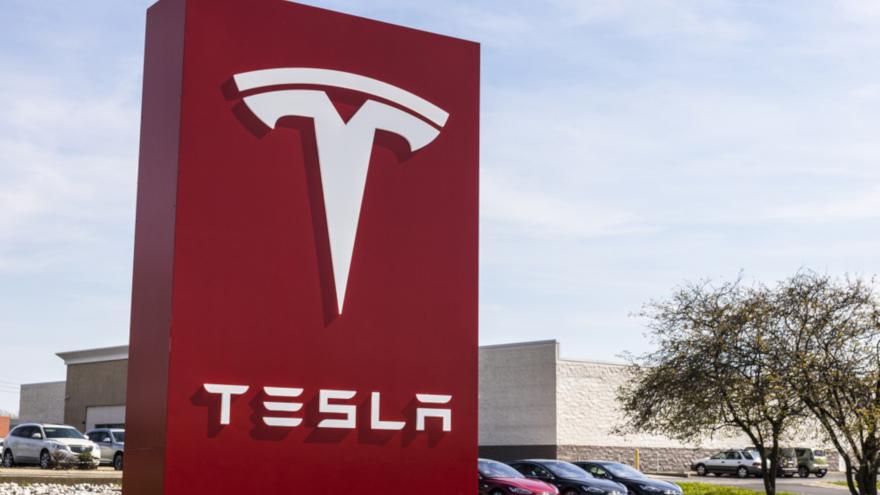Used, late-model Tesla Model S flies off lots faster than similar luxury cars

Editorial credit: Jonathan Weiss / Shutterstock.com
By subscribing, you agree to receive communications from Auto Remarketing and our partners in accordance with our Privacy Policy. We may share your information with select partners and sponsors who may contact you about their products and services. You may unsubscribe at any time.
WOBURN, Mass. –
Despite the high average sale price of a late-model used Tesla Model S at $68,159, those vehicles sell faster than similar large luxury cars, with an average selling time of 35.5 days, according to a study from automotive research firm and car search engine, iSeeCars.com
At the same time, however, among its comparable vehicles, the Model S is one of the most likely late-model used cars to be deeply discounted.
The used late-model version of the Model S sells faster than its competitors by more than a week on average. That shows that Tesla’s late-model used models are in high demand, and that is likely because of competitive pricing and low supply, iSeeCars chief executive officer Phong Ly said in a news release.
iSeeCars’ late-model used car sales analysis of the Model S and nine comparable large luxury cars found that the late-model used Tesla Model S average selling time of 35.5 days is 24.2% faster than the average for this set of cars, which is at 46.9 days. In addition, the Tesla Model S number is 15.8% faster than the 42.2-day overall average for all late-model used cars.
The $68,159 average sale price for a late-model used Tesla Model S makes it the fourth most expensive vehicle among other large luxury cars. But it is also the second most likely late-model used car in its class to be deeply discounted, behind only the Jaguar XJ.
Almost 20% of late-model used Model S cars are discounted by at least 10% below market value, almost one and a half times more often than the average for comparable models, Ly said.
Subscribe to Auto Remarketing to stay informed and stay ahead.
By subscribing, you agree to receive communications from Auto Remarketing and our partners in accordance with our Privacy Policy. We may share your information with select partners and sponsors who may contact you about their products and services. You may unsubscribe at any time.
“While the supply for used Teslas is still relatively low, it has been growing steadily as more vehicles come off lease, which could cause dealers to be more competitive with their pricing,” Ly said. “These significant deals likely contribute to their fast selling time.”
Rounding out the top five on the average late-model used car selling time are the Audi A7, Audi A8, Mercedes-Benz S-Class, and BMW 6-Series. iSeeCars.com analyzed 6.1 million late-model used car sales from April 2018 to March 2019 from model years 2016 to 2018. iSeeCars then compared the Tesla Model S to nine other similar large luxury sedans. For each model, the number of days each car was listed on iSeeCars.com was calculated, as was its average price. In addition, the number of cars which were listed for 10 percent or more below market value was tallied for each model.
Noting that range anxiety is a key factor keeping consumers from purchasing an electric vehicle, iSeeCars says the Model S has combated that issue by offering what iSeeCars says is the longest range of all electric vehicles and nearly double the range of other popular electric vehicles such as the Nissan LEAF. That range for the Model S starts at 259 miles for the base model and 335 miles for its performance-oriented model.
“In addition to having a range that likely exceeds the mileage of daily drivers, Model S drivers can take advantage of the convenience of Supercharger stations in dense metro areas that can charge a battery to 80% in under 30 minutes,” Ly said. “The popularity of the Model S shows that the company has helped dispel concerns about vehicle range and has paved the way for other luxury automakers, such as Jaguar, to introduce EVs into their model lineups.”
iSeeCars says the Model S’s technological capabilities such as its Autopilot driver-assist system, a large touchscreen infotainment display, internet connectivity and over-the-air software updates keep the vehicle current.
The results of the study:
— Tesla Model S, an average of 35.5 days on market for late-model used
— Audi A7: 39.7
— Audi A8: 39.8
— Mercedes-Benz S-Class: 41.6
— BMW 6 Series: 48.5
— BMW 7 Series: 48.7
— Jaguar XJ: 49.8
— Genesis G90: 56.7
— Porsche Panamera: 60.1
— Maserati Quattroporte: 69.8
Overall average days on market: 46.9
Among the most discounted vehicles in the Tesla Model S class:
— Jaguar XJ: 21.1% of listings discounted 10% or more
— Tesla Model S: 19.7%
— BMW 7 Series: 17.9%
— BMW 6 Series: 17.5%
— Maserati Quattroporte: 16.2%
— Genesis G90: 15.9%
— Audi A8: 12.4%
— Mercedes-Benz S-Class: 11.8%
— Audi A7: 9.6%
— Porsche Panamera: 8.5%
Overall average: 13.8%


